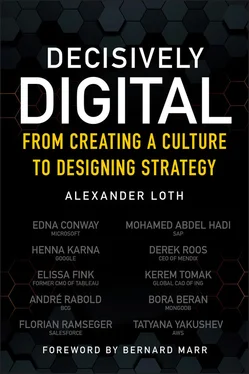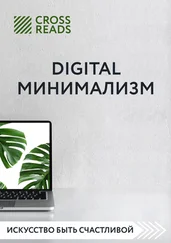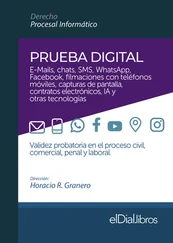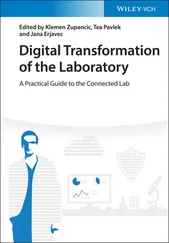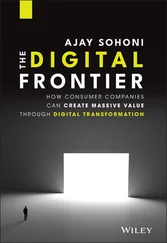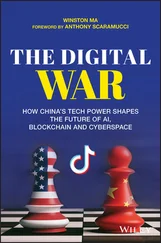Second, we might still see a change in work time in certain professions. The traditional five-day workweek with eight-hour days made sense in the industrial age, where everyone had to be at the conveyor belt at the same time for the production process to work.
With the rise in knowledge work, that requirement is going away in many places. It makes more sense to ask what the best work schedule for a knowledge worker would be for them to achieve peak performance. For some it might be a three-day work week; for others it might be a different arrangement.
Perhaps we even must reframe it from “work time” to “time when you are contactable” and from asking people to sell you their time to selling you their productive output. You see, when you get your best work ideas in the shower, the concept of a workweek goes out the window!
Alexander: Earlier you mentioned self-driving cars and digital patient records. In many countries, efforts to further drive these innovations are hampered by local regulations. What role does the government play here?
Florian:If we, as a society, are to benefit from all the new technologies that are becoming available, regulation needs to not only catch up but actually spearhead the development, especially when it comes to crucial infrastructure investments.
In terms of self-driving cars, a lot of the public discourse centers around the question of who is liable when something goes wrong. That is an important question, but it shouldn't dominate the discussion and hamper any progress. This is a technology that already can save lives and will do so even more in the future. So, any day that goes by that we don't make progress on this front means more people will unnecessarily die or get injured in road accidents.
When people rightly point out that the computer vision used in self-driving cars sometimes struggles with bad road markings, that shouldn't be a warning about how bad self-driving cars still are. Instead, we should go out and make sure lane markers are painted properly. That is a paltry cost compared to the huge benefit we would derive from it.
You could go further: Why do cars have to learn how to “see” lanes and stop signs and so on in the first place? Why haven't we thought about using technology so that the infrastructure can communicate with cars more directly? It is not that far-fetched when you think about the fact that trains receive signals from the tracks that they need to stop automatically when there is a red light, or that airplanes receive radio signals from the runway to indicate the perfect glide path. Incidentally, trains and planes are also much safer, generally speaking, than cars.
It is a similar story with digital patient records. I see, of course, the sensitive nature of digitizing this kind of data, but it is a tractable problem that can be solved, and, again, the opportunity cost of sitting on the problem is bigger than doing something about it. Countries like Canada, Denmark, and Estonia have shown that it can be implemented safely for the benefit of society. Other countries can learn from them.
Alexander: Thank you, Florian. What quick-win advice would you give that is easy for many companies to apply within their digital strategies?
Florian:Find out what the key strengths of your employees are! We have talked a lot about new digital tools, but who are the right people to operate these tools? There are two mistakes that are being made in this context.
The first is to think that just because the tool is simple to operate, anyone can now do so. I have seen this with the commoditization of survey tools that make it easy for anyone to create survey forms. It actually takes quite a bit of knowledge to set up a survey that will yield reliable results! That doesn't mean you have to hire people with the right skills for every task at hand. But you have to ask who might be able to learn the basics of good survey design.
There are of course many tools that don't require any specialized skills. Still, it would be a mistake not to think about who should be operating them. With modern content management systems, for example, it is easy to update the content of a website. But should the person who wrote a blog post for the organization's website also be the one to enter the text into the system? Perhaps not, because there is a huge opportunity cost of asking a talented writer to fiddle around with the website, both in terms of their time but more importantly in terms of whether they find enjoyment and fulfillment in their work.
Knowledge workers can be divided into two groups: the more creative ones who are good at abstraction and the more detailed-oriented ones who are good at implementing. So find out what your employees' superpowers are. There are different ways to go about it, but I particularly like the Strengths Finder test by Gallup.
Alexander: What are your favorite apps, tools, or software that you can't live without?
Florian:I'm a little biased, because I work for the company that makes it, but I am a huge fan of Tableau Prep, which is a tool for cleaning, restructuring, and integrating different data sources. It allows you to see the changes that you are making to a data table before you run the script. I am a curious creature and like to dig into all sorts of different data sets, so this tool has become a real game changer for me.
Another app that I recently discovered is Notion. I use it for my to-do lists, to keep web snippings, and to jot down ideas. But it has many other functionalities, including Kanban bords, and calendars, timelines, and it can be used by teams too. It is like a Swiss Army knife for organizing content and tasks.
Alexander: Do you have a smart productivity hack or work-related shortcut?
Florian:This is going to sound funny, given the topic of this book, but there are two hacks that I use, and they both involve protecting myself from digital content!
The first is that I have blocked Twitter, Facebook, and most news sites on my work laptop. In his book Indistractable , author Nir Eyal explains how these sites are designed to keep you on them for as long as possible, for example, by suggesting ever more content for you to check out. So I try my best to avoid tripping into one of these time sinks. Nowadays, I get my daily news update mostly by listening to the radio, and I try to stay in touch with friends mostly by phone and text message.
The second hack is that I try to avoid looking at any type of device after 10 p.m. The blue light emitted by screens suppresses the rise in melatonin that is required for us to feel sleepy at night. From the book Why We Sleep by Matthew Walker, I learned that most people who claim they can get by with less than seven hours of shut-eye are lying and are hurting not only their productivity but also their long-term health.
Alexander: What is the best advice you have ever received?
Florian:When I worked for the World Economic Forum (WEF), I was involved in several projects creating digital offerings for the WEF community, including what was essentially a social collaboration platform for the world's foremost leaders and thinkers. A colleague there introduced me to the P-O-S-T framework for thinking through new project ideas like these:
People: Define your audience.
Objective: Define what you want to do for your audience.
Strategy: How will you achieve that objective?
Technology: What technology do you need to implement the strategy?
This is extremely useful, because when we get excited about a new technology, the temptation is to try it immediately, without having really thought through whether it makes sense in the given context. With the T being the last step in the suggested process, the P-O-S-T framework is a nice forcing function to counter this inclination.
Читать дальше
